
Master Bond offers a wide variety of epoxies, silicones, polyurethanes, polysulfides and UV curable formulations designed to withstand thermal cycling. These compounds are also ideal for the bonding, sealing, coating and potting/encapsulating of substrates exhibiting different coefficients of thermal expansion and contraction. Durable and tough, these products exhibit outstanding performance in high and low temperature environments.
Applications Featuring Thermal Cycling Resistant Polymer Systems
Some common applications using Master Bond’s thermal cycling epoxies and silicones include:
- Sealing heat exchanger tubes and endplates
- Encapsulation of heat generating devices and modules
- Bonding metal and fiber reinforced composites in aerospace production
- Packaging of stress sensitive semiconductor devices
Key factors that need to be carefully evaluated in selecting the proper formulation include the temperature exposures, speed of temperature change, frequency of cycling, time spent at each extreme (long/short dwell times at different temperatures), types of substrates being joined, thickness, width, length of bond, joint geometry. One and two component compositions have been developed to closely match the thermal expansion coefficients of the substrates being joined through the incorporation of specialized fillers. Flexibilized resilient compounds in comparison absorb the thermally induced stresses between widely divergent substrates. This extends adhesive longevity, improves device reliability, prevents embrittlement/crack propagation, debonding from thermal cycling. Blends of epoxy resins containing elastic resins that minimize loss of Tg, extremely soft silicones, toughened UV cure products with rapid cure speeds have proven successful in many thermal cycling applications. Most noteworthy has been the use of high elongation epoxy polysulfide hybrid compositions to optimize cycling capability especially in low temperature environments.
Most Popular Thermal Cycling Resistant Compounds
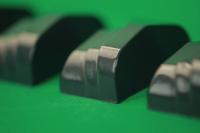 |
EP21TDCSFL SIlver filled electrically conductive epoxy adhesive. Low volume resistivity. Highly flexible. Excellent peel and shear strength. Low linear shrinkage upon cure. Good flow properties. Cures at room temperature. Resists vibration, impact, thermal cycling. Serviceable from 4K to +250°F. |
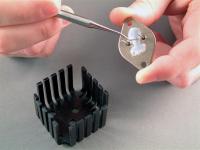 |
Supreme 11AOHT Thermally conductive, electrically insulative epoxy adhesive. Meets MIL-STD-883J Section 3.5.2 for thermal stability. High peel and shear strength properties. Non-drip system. Resists -112°F to +400°F. Toughened system. Can withstand rigorous thermal cycling. Convenient one to one mix ratio by weight or volume. Cures at room temperature. |
 |
Supreme 10HTFL Highly flexible, no mix adhesive. Offers outstanding peel strength. 100% reactive. Superior water and chemical resistance. Successfully tested for 1,000 hours 85°C/85% RH. Withstands rigorous thermal cycling. Serviceable from 4k to +350°F. |
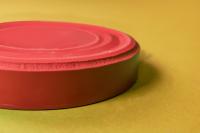 |
EP112FLAO-1 Toughened two component epoxy resin system. High thermal conductivity and electrical insulation characteristics. Outstanding dimensional stability. Low coefficient of expansion. Meets NASA low outgassing requirements. Operating service temperature range from -60 to +450°F. |
 |
MasterSil 151 Optically clear, addition curing potting, encapsulation, sealing compound. Low shrinkage upon cure. Resists up to +400°F [+204°C]. Shore A hardness 50-60. Highly resistant to water. Long pot life. |
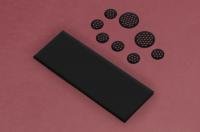 |
FLM36 B-staged film adhesive/sealant. Outstanding thermal cycling capabilities and structural properties. Offers superior toughness and flexibility. Excellent strength retention at elevated temperatures. Thermally conductive/electrically insulative. Provides uniform bond line thickness. Serviceable from -100°F to +500°F. Preforms are available. |
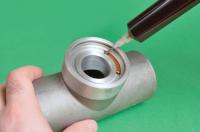 |
Supreme 45HTQ Two component, toughened, quartz filled epoxy with exceptional abrasion resistance. Heat curing system. Long working life after mixing. High compressive strength. Superb dimensional stability. Serviceable from -60°F to +450°F. Withstands exposure to petrochemicals acids, bases, solvents. Good strength retention at elevated temperatures. Successfully tested for 1,000 at 85°C/85% RH. |
 |
Supreme 46HT-2 High strength epoxy adhesive. Outstanding toughness and durability. Serviceable from -100°F to +500°F. Withstand mechanical shocks and rigorous thermal cycling. Excellent peel strength. Cures at elevated temperature. |
 |
EP40Med Excellent adhesion to metals and engineering plastics such as polycarbonates, acrylics. Flexible. Low to moderate viscosity bonding, potting, sealing, encapsulation compound. High shear/peel strength. Resists mechanical shocks and vibration. Moderately low exotherm during cure. Serviceable from -80°F to +250°F. |
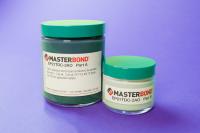 |
EP21TDC-2AO Flexible high performance adhesive, sealant, encapsulant. Excellent heat dissipative properties. High dielectric strength. Long working life. Low exotherm. Elongatio >25%. Bonds well to similar and dissimilar substrates. Serviceable from 4k to +250°F. |
